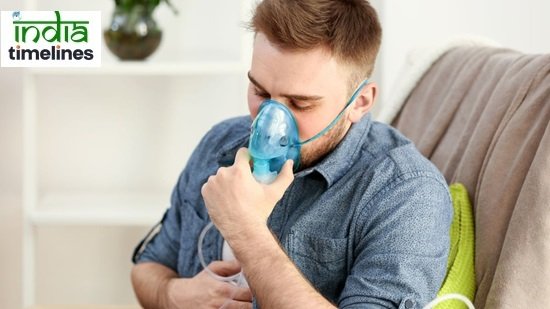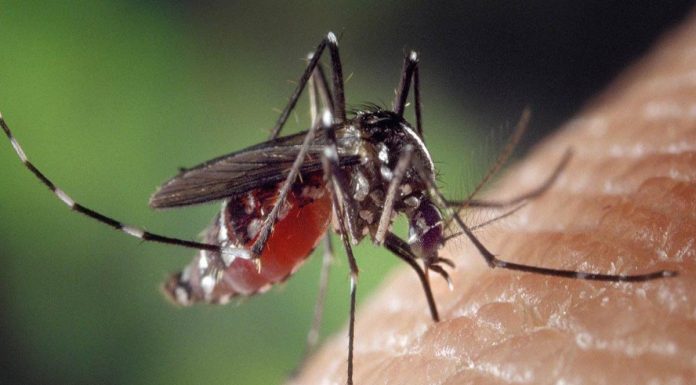
World Lung Day serves as a vital reminder of the importance of lung health and the proactive measures that can help reduce the burden of lung infections globally. With increasing awareness about respiratory diseases, particularly post-pandemic, experts emphasize the role of voluntary vaccination and public awareness in preventing potentially fatal lung infections. These actions can significantly improve global health outcomes by reducing hospitalizations, long-term complications, and mortality rates associated with respiratory diseases.
The Global Burden of Lung Infections
Lung infections remain one of the leading causes of death and morbidity worldwide. Diseases such as pneumonia, tuberculosis (TB), chronic obstructive pulmonary disease (COPD), and influenza continue to threaten global health. The emergence of the COVID-19 pandemic further highlighted the need for robust lung health systems and heightened awareness. According to the World Health Organization (WHO), lower respiratory infections are the fourth leading cause of death globally, particularly affecting vulnerable populations such as the elderly, children, and those with compromised immune systems.
However, with voluntary vaccinations and community-wide awareness, the impact of many of these infections can be significantly mitigated. Vaccination campaigns targeting key diseases like pneumonia and influenza have already shown promising results in reducing the incidence of severe lung diseases.
Why Vaccination is Critical for Lung Health
Vaccination is one of the most effective public health tools available to prevent respiratory infections. The pneumococcal vaccine, for example, is specifically designed to prevent pneumonia caused by the bacterium Streptococcus pneumoniae. This vaccine, along with the influenza vaccine, has proven highly effective in reducing hospitalizations due to severe respiratory illnesses.
Experts recommend that high-risk populations, including older adults, individuals with chronic diseases, and healthcare workers, receive these vaccinations regularly. The influenza vaccine, administered annually, protects against the most common strains of the flu virus, which can often lead to complications like pneumonia or exacerbate existing lung conditions.
In addition to these, the COVID-19 vaccines have become a crucial part of the global response to lung infections. While the virus initially targeted the respiratory system, causing severe complications such as acute respiratory distress syndrome (ARDS), vaccination efforts have dramatically reduced the severity of the disease and saved countless lives.
Raising Public Awareness for Effective Prevention
Awareness campaigns play a pivotal role in ensuring that the general public understands the importance of vaccines and other preventive measures. Simple actions such as hand hygiene, cough etiquette, and wearing masks in high-risk environments can drastically reduce the transmission of infectious respiratory diseases. Public health agencies globally are working to increase the understanding of these practices.
Educational programs aimed at high-risk groups have also been instrumental in fostering a culture of prevention. By empowering individuals with the knowledge to protect themselves and others, the spread of lung infections can be curtailed. In countries with limited healthcare resources, such campaigns are essential to controlling outbreaks and ensuring that vulnerable populations have access to vital information and vaccinations.
The success of vaccination programs and public awareness hinges on sustained government and community support. National health organizations and non-profits have collaborated with international bodies like the WHO to promote World Lung Day and similar initiatives. By drawing attention to the critical importance of lung health, these campaigns help drive policy changes and encourage the widespread adoption of preventive measures.
The Role of Healthcare Professionals in Combating Lung Infections
Healthcare professionals, particularly pulmonologists, play a key role in preventing and treating lung infections. Their expertise and insights into diseases like tuberculosis (TB), asthma, and COPD are essential in managing and reducing the prevalence of these conditions. Many experts recommend that healthcare providers take a proactive approach by educating patients on the benefits of vaccinations and early screening for respiratory conditions.
Routine check-ups and early diagnosis of lung infections can significantly reduce the risk of complications. For instance, tuberculosis remains a major concern in developing countries, but through timely diagnosis and appropriate treatment, many lives can be saved. Similarly, the identification of latent TB infections and the administration of prophylactic treatments help prevent the progression of the disease to an active state.
The healthcare sector’s commitment to lung health extends beyond treatment. Hospitals, clinics, and health organizations are instrumental in disseminating public health messages about vaccination schedules, especially for vulnerable groups. By maintaining preventive healthcare strategies, these institutions contribute significantly to reducing the burden of lung diseases.
Key Insights from Global Experts on Lung Health
Several lung health experts advocate for a comprehensive approach that includes vaccination, public education, and research to combat lung infections. Dr. Virendra Singh, a renowned pulmonologist, stresses that preventive care must go hand-in-hand with accessible treatment options. “We need to focus on prevention by encouraging vaccinations and fostering awareness about the importance of early intervention,” Dr. Singh emphasizes. His perspective is echoed by other specialists who highlight the necessity of expanding vaccination coverage and ensuring that individuals understand the long-term risks associated with untreated respiratory conditions.
Global organizations like the Global Initiative for Chronic Obstructive Lung Disease (GOLD) and The Union Against Tuberculosis and Lung Disease are working to advance research and treatment protocols to improve lung health outcomes. Their initiatives provide essential guidelines on managing chronic lung diseases and developing new vaccines.
Challenges and Opportunities in Voluntary Vaccination
While the benefits of voluntary vaccination are evident, there remain significant challenges, particularly in low-income countries where access to vaccines is limited. Supply chain issues, vaccine hesitancy, and lack of infrastructure hinder the effective delivery of vaccinations to those most in need.
However, there are also significant opportunities for improvement. Technological advancements in vaccine development and distribution, coupled with strong public health initiatives, have the potential to change the landscape of lung disease prevention. Governments must continue to work closely with health organizations and pharmaceutical companies to ensure that vaccines are accessible to everyone, regardless of socio-economic status.
Public-private partnerships, such as those formed during the development and rollout of COVID-19 vaccines, serve as a model for future initiatives aimed at combating lung infections. By ensuring equitable access to life-saving vaccines, nations can reduce the global burden of lung disease.
Conclusion: Strengthening Global Efforts to Combat Lung Infections
On World Lung Day, it is crucial to recognize the transformative impact of voluntary vaccination and heightened public awareness in the fight against lung infections. By prioritizing these preventive measures, we can significantly reduce the global burden of respiratory diseases. Governments, healthcare professionals, and communities must collaborate to ensure that vaccines are accessible to all and that educational efforts continue to empower individuals to take control of their lung health.




























